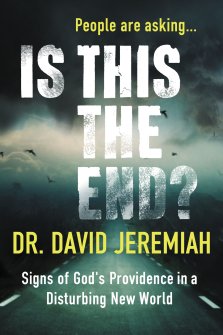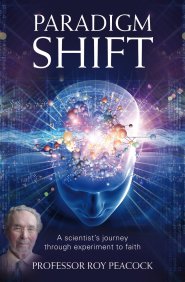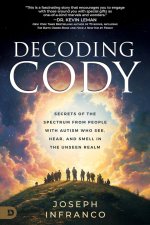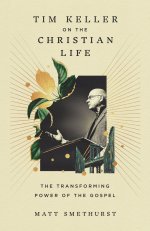The lion's share of this "memoir" is consumed by the author's astonishing Christian life. It opens well with an amusing, and honest portrait of his early years. I warmed to his self-deprecatory humour, humility, and ability as a thermodynamics engineer.
His distinguished engineering career is given insufficient prominence, but there are good snippets, and his interesting appendix of The Laws of Thermodynamics might have been better earlier in the text.
When young, he attended church but remained an atheist, until the conversion of his young wife began a surprising turnabout. Changes in her behaviour and enduring "grin" are accepted by Peacock as experimental evidence for the existence of God, without any additional scientific or philosophical arguments to be expected from a self-confessed "intellectual".
When Peacock himself was challenged by a missionary, he jumps again to the conclusion that God is at work. A dream or "vision"—one of many in the book—leads to his own conversion and he walks out of church feeling "as if the tectonic plates upon which my life was founded had taken a massive shift".
To Peacock, God is a miracle worker: Gen. 1:2 reverses the second law of thermodynamics, when the Creator turns initial "chaos" into order. Miracles multiply in Roy's life from house moves to two cases of helping to raise people from the dead, despite, he says, its violation of entropy.
He is catapulted into preaching on the Methodist circuit, which led to a successful worldwide healing ministry, initially combined with his research into fluid mechanics and aeronautics but eventually as a full time minister leading many to be "born again", including in his workplace, a Fellow and librarian at Cambridge.
"Christian lives \[have\] twofold essentials...the word of God \[which he takes literally\] and the faith to see it put into practice." But he admits that "faith is not certainty". Yet he is certain of his many answers to prayer and conversations with God, whom he heard speaking audibly once.
He is aware that "anybody reading these chapters could be excused for concluding that this is a manifesto of triumphalism, where every incident...is met by the introduction of the Lord Jesus at a critical moment, and the miracles flow...but it hasn't been quite like that". He acknowledges family health issues, but even these turn out better than most families experience! Indeed, he affirms, "The God I served was in total control".
That has theological implications that go unexamined: here is a God with favourites, who privileges Peacock's life and the people he ministers to (though he is not always a successful healer), leaving the majority of us with insufficient evidence of an interventionist God and without the "reasonable pathways" to Christian belief that I describe in my own "Contemporary Creed". Much as readers may admire Peacock's outstanding faith and ministry, some will expect more reality from a successful engineer.
Trustpilot









